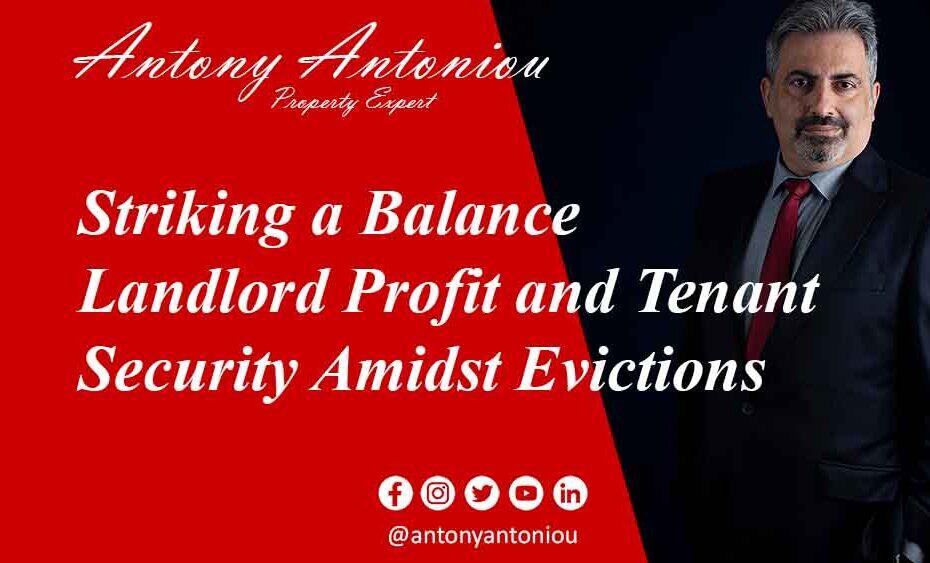Striking a Balance – Landlord Profit and Tenant Security Amidst Evictions
In the ongoing discussion surrounding the rental housing market, there is a tendency to depict landlords as greedy profiteers ready to evict tenants at the slightest provocation. However, the reality is more intricate than this one-sided portrayal suggests. While some landlords might indeed prioritize their financial gains, a more comprehensive perspective reveals a complex web of economic factors driving eviction rates. Recognising these factors could lead us towards a more equitable approach to tackling the housing crisis.
The Debate over Section 21 Notices
Section 21 notices, often viewed as a landlord’s eviction tool, have become a central point of contention. The prevailing narrative paints landlords as quick to employ this legal provision to remove tenants, regardless of their circumstances. While it is important to acknowledge instances of misuse, it is equally crucial to explore the underlying reasons behind the surge in eviction claims.
Escalating Costs and Uncertainty
Recent data from the Ministry of Justice for the period of April to June 2023 revealed a 24% rise in landlord possession claims compared to the same quarter in 2022. However, beneath these figures lies a substantial convergence of factors, including regulatory alterations and escalating interest rates that have impacted landlords’ confidence and financial stability.
A Changing Landscape for Landlords
The landscape of the rental market is far from static. For numerous landlords, property investments were calculated financial decisions aimed at generating a reasonable return on investment. Nonetheless, as interest rates have surged unexpectedly and regulatory changes loom large on the horizon, the economic viability of rental properties has been thrown into question.
A Reality from the Landlord’s Perspective
While it is effortless to adopt a one-size-fits-all view of landlords, it is vital to remember that not all landlords fit this mould. For some, being a landlord is a business venture – an endeavour motivated by the need to earn a reasonable profit on their investments. The depiction of landlords as heartless entities disregards the fact that these individuals also have financial responsibilities, including mortgages, upkeep costs, and taxes.
Striking a Balance: Profit and Tenant Well-being
Instead of demonising landlords outright, we must seek a more nuanced perspective. The root of the housing crisis is not solely in landlords’ actions but in a multifaceted interplay of market dynamics, regulatory alterations, and economic pressures.
**Glimpsing into the Future**
The introduction of the Renters (Reform) Bill has added an extra layer of uncertainty for landlords. The elimination of Section 21 notices is on the horizon, but its timeline and replacement remain uncertain. This uncertainty has prompted apprehensive landlords to contemplate selling their properties now, potentially leading to an upsurge in eviction claims.
An Impending Crisis
As more landlords transition from fixed-rate mortgage deals to a new lending era, the repercussions could be significant. Many landlords might not pass banks’ stress tests, resulting in more property sell-offs and eviction notices. The aftershocks of the housing crisis are just beginning, with both tenants and landlords bracing for the impact.
Conclusion
While it may be tempting to vilify landlords as the sole contributors to the eviction crisis, a deeper comprehension of the broader economic landscape is imperative. Evictions are not solely about landlords wanting to maximise their profits at the expense of tenants. Instead, it is a complex issue influenced by economic pressures, regulatory changes, and personal financial commitments. To effectively address the housing crisis, it is crucial to strike a balance between ensuring tenant security and acknowledging landlords’ legitimate concerns. Only by considering all facets of this intricate issue can we hope to find a sustainable solution that benefits all parties involved.

